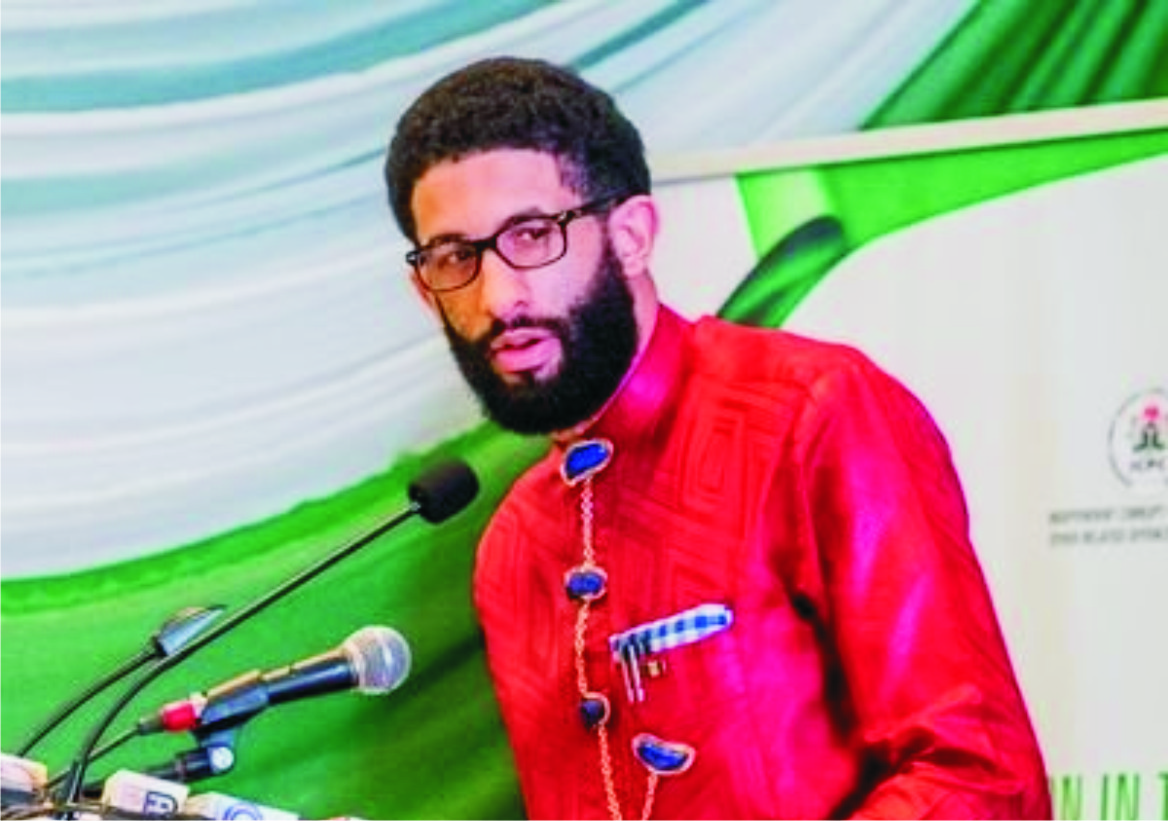Oil & Energy
Power: FG Targets 7,000 Megawatts By 2021

Senior Special Assistant to President, Muhammadu Buhari on Public Affairs, Ajuri Ngelale, has urged Nigerians to expect better performance from the current administration as efforts are in place to revive the power sector.
Ngelale, who is also a member of the Presidential Power Initiative, said President Buhari had engaged processes to ensure that the transformation in Nigeria’s power sector is visible to all by 2021.
“Nigerians have got the right to be sceptical, they were told that we would be generating 40,000 megawatts by 2020 and all of that, and that has not happened.
“So, we understand that if government says something about the power sector, Nigerians are very sceptical, but we are asking our people to pay attention to what is happening right now.
“Earlier this year, around July, the Federal Government signed an MoU with Siemens a global engineering giant based in Germany.
“As a result of the meeting with Angela Merkel (German Chancellor) and President Muhammadu Buhari in the State House, they agreed that the German Government would step in and assist us with the development of our power sector.
“So, what we are telling Nigerians and we are saying it openly for them to hold us to account, is that by December 2021 we would have increased our distribution capacity from 3000 megawatts to about 7000 megawatts.
“Which means Nigerians will see more than double the capacity they have been seeing over the last several decades within the next two years”, he said.
Ngelale said due to some challenges in the sector, Nigerian government is currently focused on distribution.
“Mr President has said we need to deal with distribution before we touch anything else, let Nigerians be seeing the power that we are already generating.
“While that is going on, as we get towards 2021, we are also building the Ajaokuta to Kaduna to Kano Gas Pipeline but along that pipeline, there is going to be three power plants.
“One in Abuja, Kaduna and Kano; each power plant is going to generate 1,350 megawatts; if you put all that together, that is of course more than 4000 megawatts of new power.
“And that is separate from the Mambilla Hydro Power Project that’s about 3500 megawatts that we are currently at the end of negotiations with Chinese Government”.
Ngelale, while expressing Government’s excitement at the project, reiterated that by 2023, power distribution would have risen to 11,000 megawatts.
Oil & Energy
Reps C’mitee Moves To Resolve Dangote, NUPENG Dispute

Oil & Energy
Increased Oil and Gas: Stakeholders Urge Expansion Of PINL Scope

Oil & Energy
Digital Technology Key To Nigeria’s Oil, Gas Future

Experts in the oil and gas industry have said that the adoption of digital technologies would tackle inefficiencies and drive sustainable growth in the energy sector.
With the theme of the symposium as ‘Transforming Energy: The Digital Evolution of Oil and Gas’, he gathering drew top industry players, media leaders, traditional rulers, students, and security officials for a wide-ranging dialogue on the future of Nigeria’s most vital industry.
Chairman of the Petroleum Technology Association of Nigeria (PETAN), Wole Ogunsanya, highlighted the role of digital solutions across exploration, drilling, production, and other oil services.
Represented by the Vice Chairman, Obi Uzu, Ogunsanya noted that Nigeria’s oil production had risen to about 1.7 million barrels per day and was expected to reach two million barrels soon.
Ogunsanya emphasised that increased production would strengthen the naira and fund key infrastructure projects, such as railway networks connecting Lagos to northern, eastern, and southern Nigeria, without excessive borrowing.
He stressed the importance of using oil revenue to sustain national development rather than relying heavily on loans, which undermine financial independence.
Comparing Nigeria to Norway, Ogunsanya explained how the Nordic country had prudently saved and invested oil earnings into education, infrastructure, and long-term development, in contrast to the nation’s monthly revenue distribution system.
Chief Executive Officer (CEO) and Executive Secretary of the Major Energies Marketers Association of Nigeria (MEMAN), Clement Using, represented by the Secretary of the Association, Ms Ogechi Nkwoji, highlighted the urgent need for stakeholders and regulators in the sector to embrace digital technologies.
According to him, digital evolution can boost operational efficiency, reduce costs, enhance safety, and align with sustainability goals.
Isong pointed out that the downstream energy sector forms the backbone of Nigeria’s economy saying “When the downstream system functions well, commerce thrives, hospitals operate, and markets stay open. When it fails, chaos and hardship follow immediately,” he said.
He identified challenges such as price volatility, equipment failures, fuel losses, fraud, and environmental risks, linking them to aging infrastructure, poor record-keeping, and skill gaps.
According to Isong, the solution lies in integrated digital tools such as sensors, automation, analytics, and secure transaction systems to monitor refining, storage, distribution, and retail activities.
He highlighted key technologies including IoT forecourt automation for real-time pump activity and sales tracking, remote pricing and reconciliation systems at retail fuel stations, AI-powered pipeline leak detection, terminal automation for depot operations, digital tank gauging, and predictive maintenance.
-

 Rivers2 days ago
Rivers2 days agoFTAN Gets New State Coordinator … To Push For Tourism
-
News2 days ago
NDLEA arrests two drug kingpins in Lagos, seizes cocaine, heroine
-

 Sports2 days ago
Sports2 days agoGroup lauds Foundation’s contribution to football, youth dev.
-
Education2 days ago
Lga boss tasks corp members on diligent service to fatherland
-

 Politics2 days ago
Politics2 days agoNew PDP Leaders Emerge In Adamawa After Congress
-

 Sports2 days ago
Sports2 days agoForest Still Looking For Winning Formula
-

 online games3 days ago
online games3 days agoThe Power of Advanced Historical Data and Live Metrics for Football Analytics
-
Rivers2 days ago
Democratic Rule Return Sparks Renewed Debate In Rivers

